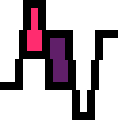Difference between revisions of "NEC Avenue"
From NEC Retro
Ccawley2011 (talk | contribs) |
|||
| Line 15: | Line 15: | ||
==Softography== | ==Softography== | ||
| − | : | + | {{CompanyHistoryAll|NEC Avenue}} |
| + | [[Category:Use CompanyHistoryAll template]] | ||
| + | |||
===[[PC Engine]]=== | ===[[PC Engine]]=== | ||
*''[[Fantasy Zone]]'' (1989) | *''[[Fantasy Zone]]'' (1989) | ||
Revision as of 15:38, 30 December 2021

|
| NEC Avenue |
|---|
| Founded: 1987 |
| Defunct: 1998 |
| Merged into: NEC Interchannel (1995) |
| Headquarters: Japan |
This short article is in need of work. You can help NEC Retro by adding to it.
NEC Avenue was a software development division of NEC. It was merged with other studios to form NEC Interchannel in 1995.
Alongside Hudson Soft, NEC Avenue was responsible for publishing a significant portion of the PC Engine, CD-ROM² and Super CD-ROM² games library. It also created some accessories for the console, and published video game-related music CDs (which in 1994 represented about 10% of the business[1]).
The company should not be confused with other divisions of NEC, including NEC Home Electronics which was also publishing titles for the PC Engine family.
Softography
PC Engine
- Fantasy Zone (1989)
- After Burner II (1990)
- Thunder Blade (1990)
- OutRun (1990)
CD-ROM²
- Juuouki (1989)
- Gain Ground SX (1992)
Accessories
- Avenue Pad 3 (1991)
- Avenue Pad 6 (1993)
References
Sega Retro has more information related to NEC Avenue
|
